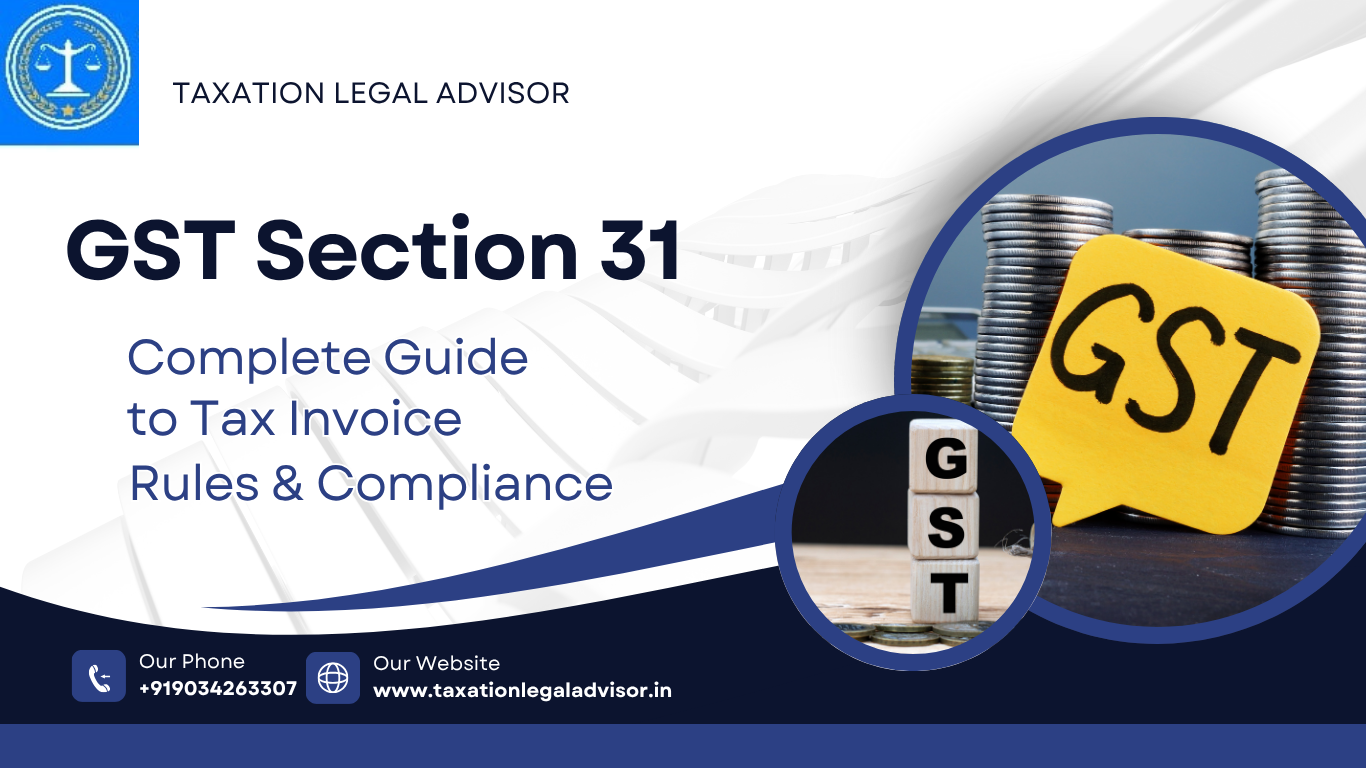Introduction
Under the Goods and Services Tax (GST), a tax invoice is a crucial document that validates a supply transaction. Section 31 of the CGST Act, 2017 specifies the rules for issuing tax invoices, including mandatory details, time limits, and special cases like bill of supply and e-invoicing.
Failing to comply with GST invoice rules can lead to ITC denial, penalties, or legal scrutiny. This guide explains Section 31 in detail, helping businesses stay compliant.
When is a Tax Invoice Required Under GST?
A registered taxpayer must issue a tax invoice in the following cases:
✔ Supply of taxable goods – Mandatory for all B2B and B2C (if buyer demands) transactions.
✔ Supply of taxable services – Required unless covered under reverse charge.
✔ Export transactions – Must issue an invoice with “Export” or “Supply meant for export” mentioned.
Exception: A bill of supply (not a tax invoice) is issued for:
- Exempt supplies
- Transactions under the composition scheme
Mandatory Details in a GST Tax Invoice (Rule 46)
A valid tax invoice must include:
- 1. Supplier’s Details
- Name, address, and GSTIN
- Unique invoice number & date
- 2. Recipient’s Details (B2B only)
- Name, address, and GSTIN (if registered)
- 3. Supply Details
- Description, quantity, and value of goods/services
- HSN/SAC code (based on turnover)
- 4. Tax Breakdown
- CGST, SGST, IGST, and cess (as applicable)
- Taxable value and total amount payable
- 5. Additional Requirements
- Signature of supplier/authorized representative
- Place of supply (for inter-state transactions)
Time Limit for Issuing Tax Invoice
| Type of Supply | Invoice Issuance Deadline |
| Goods | Before or at the time of removal/delivery |
| Services | Within 30 days of service completion |
| Continuous Supply | Before/at each payment receipt or completion |
| Banking/Insurance | Within 45 days from service completion |
Special Cases in GST Invoicing
1. Bill of Supply (Instead of Tax Invoice)
- Used for exempt supplies or by composition dealers.
- Does not contain tax details (since no GST is charged).
2. Revised Invoice
- If errors are found, a revised invoice can be issued within a specified time.
3. E-Invoicing (Mandatory for Some Businesses)
- Businesses with ₹5 Cr+ turnover must generate e-invoices via the IRP portal.
- Contains a unique IRN (Invoice Reference Number) for authenticity.
Consequences of Non-Compliance
❌ ITC denial for the buyer – Missing details can block input tax credit claims.
❌ Penalties up to ₹25,000 – For incorrect or non-issuance of invoices.
❌ Legal scrutiny – Tax authorities may audit non-compliant businesses.
How Taxation Legal Advisor Can Help
Our GST experts assist with:
🔹 Drafting compliant GST invoices
🔹 E-invoicing implementation
🔹 GST audit & dispute resolution
🔹 Corrective measures for invoice errors
- 📞 Need GST Invoice Compliance Help? Call Us at +919034263307!
- 📧 Email: [contact@taxationlegaladvisor.in ]
🌐 Visit: https://taxationlegaladvisor.in










